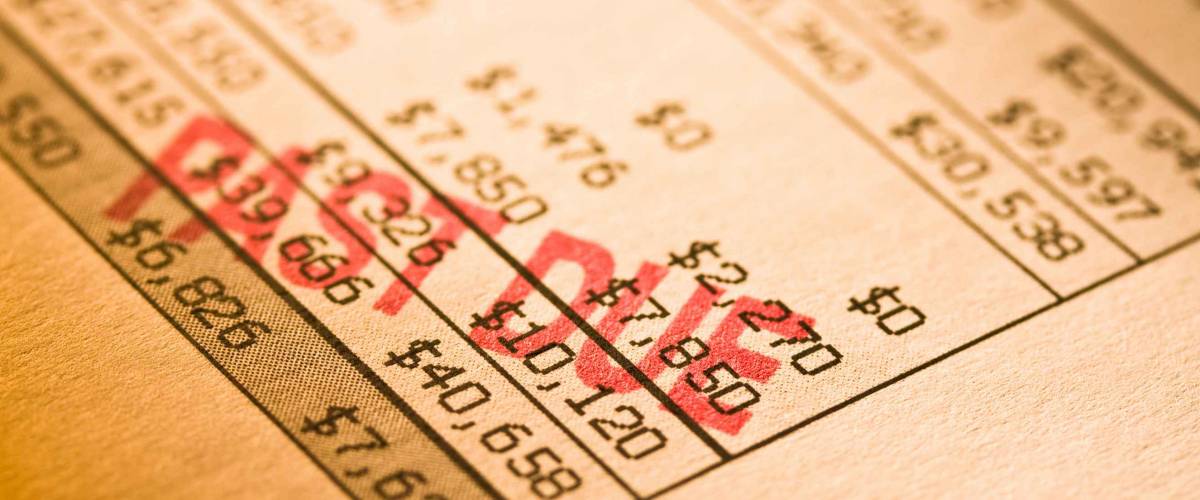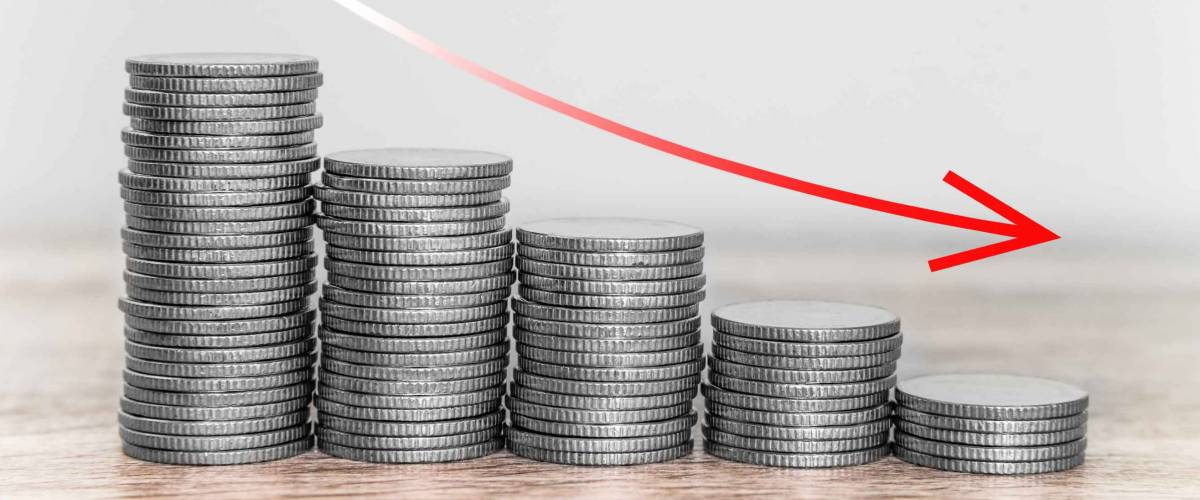What causes a credit score to fall?
There are a few possible explanations for a sudden drop:
1. You applied for new credit

Every time you apply for a new credit card or loan, your lender will request your credit history from one of the three major credit bureaus — Equifax, Experian or TransUnion — before they decide whether to approve your application.
This is called a “hard inquiry,” and it will lower your credit score by several points. Hard inquiries are unavoidable when you’re applying for new credit, but the good news is that the dip is only temporary, and your score should go back up again soon.
What to do:
After a hard inquiry, continue to monitor your score and try to avoid applying for any new loans or credit cards for the time being.
Making multiple hard inquiries in a short period can cause serious damage to your score, so it’s best to space out your applications for new credit by at least six months.
It’s also a good idea to only apply for loans or credit cards that you know you’ll be approved for. There’s no point in hurting your score if you think you’re going to get turned down.
2. You bought something expensive

If you put a large purchase on your credit card recently, it might have affected your score by bumping up your credit utilization ratio.
Your utilization ratio is the amount of credit you’re using divided by the total amount of credit you have available.
As a rule of thumb, you should try to keep your utilization ratio under 30%. That means if you have $10,000 in credit available, you should be using $3,000 or less.
What to do:
The simplest way to get your credit utilization ratio under 30% is to pay off your credit-card balances.
If you’re able to comfortably pay off your balances in full each month, it’s worth contacting your credit-card company to see if they can increase your limit. A higher credit limit will bring down your utilization ratio — as long as you don’t decide to go on a spending spree.
For big expenses like home renovations or dental work, ask whether the provider offers a financing plan so you can pay your bill in installments. That way your purchase won’t appear on your credit card as a big lump sum and jack up your utilization ratio.
3. You missed a payment or made a late payment

Your payment history makes up 35% of your credit score. That means that even one overdue bill can cause your score to plummet.
Any payment that’s more than 30 days late will cause your credit-card issuer to report you to one of the three major credit bureaus. Payments that are more than 60 days overdue can have even more serious repercussions.
Unpaid bills will go into “collections,” which means your lender will start hassling you or hire a debt-collection agency to try to get you to pay up. Any debt that goes into collections will stay on your credit report for seven years and have a substantial impact on your credit score.
What to do:
First, pay off your overdue bill as soon as possible. Make an effort to get in all your payments on time moving forward, and your score should eventually go back up.
It may help to set up reminders on your calendar app for each of your recurring bills. You can also sign up for a free credit-monitoring service — Credit Sesame, for example — that will automatically send you an email reminder a few days before you have a payment due.
4. Your credit limit was lowered

If the credit limit on one of your cards was lowered while it was still carrying a balance, your credit utilization ratio may have spiked and caused your credit score to drop.
For example, a $3,000 balance on a credit card with a $10,000 limit is within the recommended utilization ratio of 30%. But with a credit limit of $5,000, that same balance would bump the utilization ratio up to 60%, which could count against you.
What to do:
First, pay off as much of your existing balance as you can to get your credit utilization ratio down.
Then contact your issuer to find out why your credit limit was lowered, and ask whether there are any steps you can take to bring it back up. A cut to your credit limit doesn’t necessarily mean you’ve done something wrong; sometimes credit-card issuers will lower the limit on a card that hasn’t been used in a while.
Lastly, if you have multiple credit cards, you might want to look into raising the limit on one of the others to help bring down your overall utilization ratio.
5. You closed a credit card

Each time you close a credit card your available credit decreases, which hikes up your credit utilization ratio and takes a chunk out of your credit score.
Closing an older credit card also brings down the average age of your remaining credit history, which accounts for 15% of your credit score. Basically, the longer you’ve had credit on your active cards, the better your score will be.
What to do:
Even though it may be tempting to close an old credit card once you’ve fully paid it off, keeping it open will be beneficial for your credit score.
To avoid paying an annual fee on a card you don’t use much anymore, contact the issuer and ask whether it can keep your account open and switch you to a card without a fee.
If you really want to cancel a credit card, try to close the one that’s newest. That way you won’t shorten your credit history too much.
6. Someone else missed a payment

If you co-signed on a loan or credit card for someone who missed a payment or ran up a large balance, your credit score may have dropped as a result.
It’s your responsibility to ensure the payments are made on time, even if the person you co-signed for is the primary borrower.
What to do:
If you aren’t sure whether the borrower can make their payments on time, set up the account so you receive its monthly statements.
Then set a reminder on your calendar app for a few days before the payment is due. Check the account balance to make sure it’s been paid up.
If the payment hasn’t been made, try sending a gentle reminder to the person you co-signed for. If they’re unable to pay, you’ll need to cover the outstanding balance yourself if you want to keep your credit score intact.
7. There’s a mistake on your credit report

If none of the reasons above sound right, you may have a mistake on your credit report.
One of your payments might have been reported as late or applied to the wrong account. Even a minor typo on the part of your lender could affect your credit score.
In rare cases, a mistake on your credit report could signal that you’ve been the victim of identity theft. Try to get to the bottom of it immediately.
What to do:
The easiest way to protect yourself from mistakes on your credit report is to use a free online service like Credit Sesame to monitor your credit.
If you notice an error, you can dispute it by writing a letter to the credit bureau that issued the report. Along with your letter, include copies of any documents that support your case, like credit-card bills or bank statements.
All three of the major credit bureaus will allow you to submit a dispute letter online or by mail.
This 2 minute move could knock $500/year off your car insurance in 2024
OfficialCarInsurance.com lets you compare quotes from trusted brands, such as Progressive, Allstate and GEICO to make sure you're getting the best deal.
You can switch to a more affordable auto insurance option in 2 minutes by providing some information about yourself and your vehicle and choosing from their tailor-made results. Find offers as low as $29 a month.







